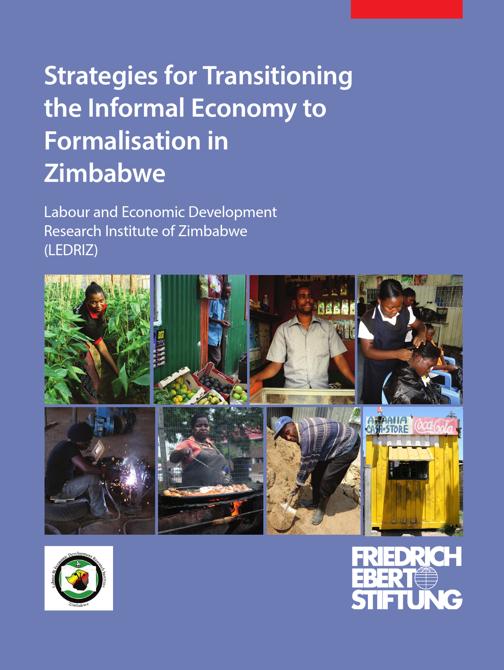Publikationen der StiftungStrategies for transitioning the informal economy to formalisation in Zimbabwe Titel
Titelaufnahme
- TitelStrategies for transitioning the informal economy to formalisation in Zimbabwe
- Körperschaft
- Erschienen
- Umfang19 S.
- SpracheEnglisch
- DokumenttypDruckschrift
- Schlagwörter
- Geografika
- URN
- Das Dokument ist frei verfügbar
- Nachweis
- Archiv
The informal economy in Zimbabwe is marked by acute decent work deficits and a disproportionate share of the working poor. Workers in the informal economy face higher risks of poverty than those in the formal economy. Although some activities offer reasonable livelihoods and incomes, most people engaged in the informal economy are exposed to inadequate and unsafe working conditions. Methods for formalising the informal economy can take various forms which include registration, taxation, organisation and representation, legal and social protection, business incentives and support. The benefits are many: it contributes to the establishment of better (decent) jobs, creates a broader tax base that may allow lower rates, possibly increases investment and strengthens the social contract/rule of law. Recommendations include the adaptation of social security schemes to the specificities of informal economy groups and should be used in combination. Such measures include the gradual extension of social insurance schemes, the introduction of special arrangements for informal economy workers, the development of conditional and unconditional cash transfer programmes that support access to health and education and employment guarantee schemes.
1
